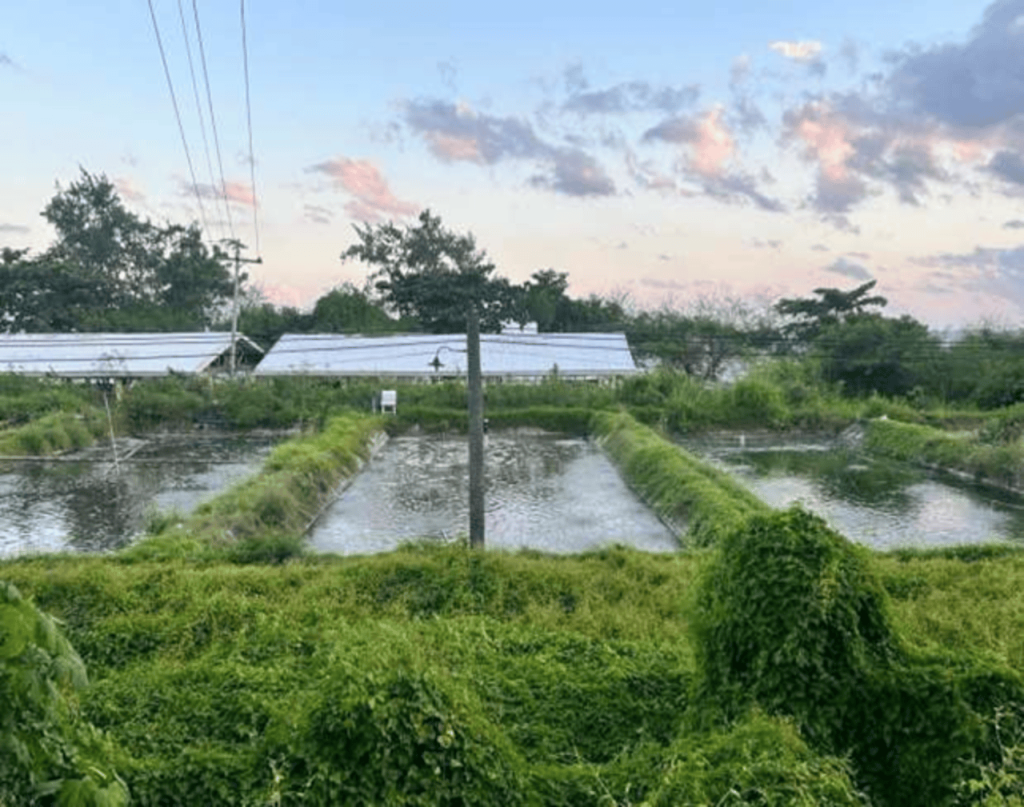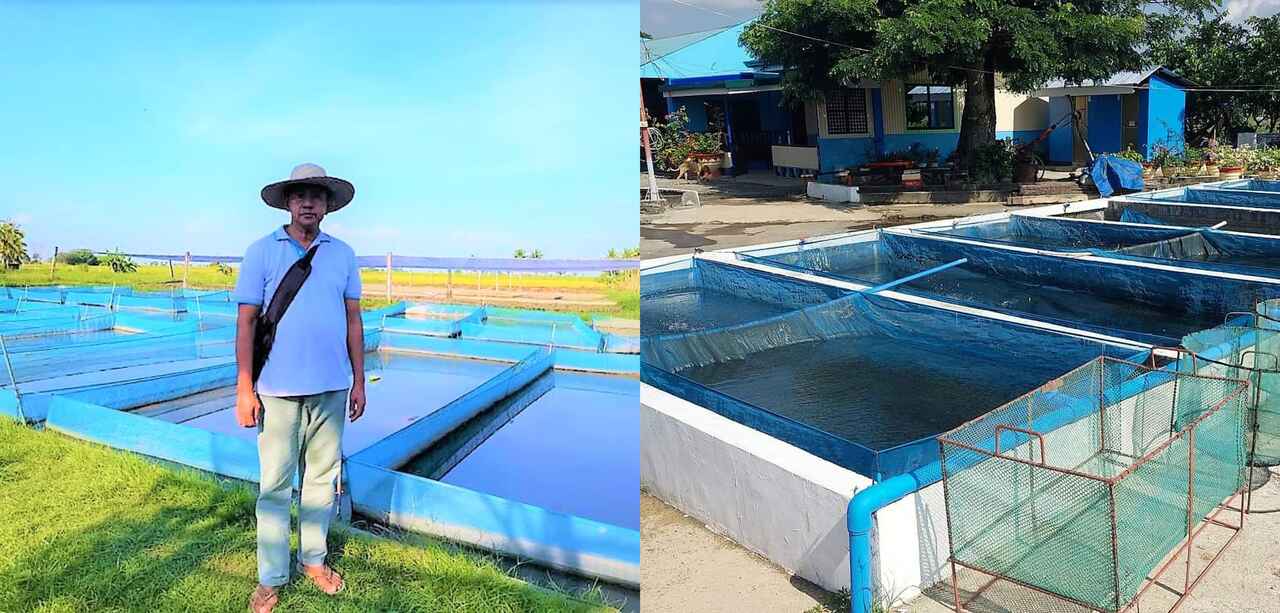The Sustainable Aquaculture Lending Program (SALP), also known as Pagsasakang Pantubig, is a loan program aimed at supporting the entire aquaculture value chain in the Philippines. Spearheaded by Landbank, the program helps strengthen the operations of fisheries, mariculture, and aquaculture businesses, including related economic activities.
SALP operates under a growership model where institutional buyers or processors (like canning companies) form business linkages with small fisherfolk, cooperatives, MSMEs, and other entities. The goal is to streamline supply, improve production output, and promote sustainable operations across the aquatic farming sector. Whether you’re a fish breeder, a seaweed farmer, a trader, or a processor, SALP can help finance your operations—providing credit support for input purchases, working capital, and facility development.
Eligible Projects under SALP

Borrowers may apply for loans under this program for any project that falls within the aquaculture or fishery value chain.
Eligible projects include:
- Breeding, Hatchery, or Nursery Operations
- Grow-out/Culture Production of fish, seaweed, or other aquatic species
- Seaweed Farming and Processing
- Fishery Product Processing, including canning, freezing, or drying
- Aquatic Products Trading
- Ancillary Services like logistics, refrigeration, transport, and feed supply
What the Loan Covers
Loans under SALP can be used for various purposes:
- Purchase of Aquaculture Inputs: Feeds, fingerlings, fertilizers, nets, and other materials needed for fish farming
- Working Capital for Trading and Marketing: Fund your day-to-day operations and trading expenses
- Acquisition of Fixed Assets: Includes fishing vessels, fish cages, aerators, pumps, High Density Polyethylene (HDPE) liners, generators, transport vehicles, equipment, and machinery
- Pond Development or Improvement: Construction, expansion, or upgrading of fish ponds and mariculture areas
- Construction of Facilities: Cold storage units, ice plants, or processing facilities
- Rediscounting: Loans may also be used to finance the rediscounting of promissory notes or receivables
Loan Features
Some of the notable features of this program are listed below:
- Loanable Amount: Up to 80% of the total project cost
- Interest Rate: Determined based on market rates and adjusted per borrower classification
- Security/Collateral Options
- Real Estate Mortgage
- Chattel Mortgage
- Assignment of Receivables or Purchase Orders
- Assignment of sub-promissory notes with collateral (for rediscounting)
- Insurance or guarantee coverage as acceptable security
Benefits
It also offers the following benefits:
- Helps small and medium aquaculture businesses access working capital and improve productivity
- Promotes long-term partnerships between small suppliers and big institutional buyers
- Strengthens the aquaculture supply chain from breeding to processing
- Supports local food security and job generation in the fisheries sector
Who Can Apply for the SALP/Pagsasakang Pantubig Program?
To qualify for this lending program, the borrower must belong to one of the following categories:
- Cooperatives and Federations
- Must be registered with the Cooperative Development Authority (CDA)
- Have approved Articles of Cooperation and By-laws
- Must meet required paid-up capital and minimum membership
- Operate within the aquaculture, mariculture, fishery, or related sectors
- Submit complete financial and operational documents
- Associations or Non-Government Organizations (NGOs)
- Duly registered with authorized government agencies (e.g. SEC, DOLE, DSWD)
- Must be actively engaged in aquaculture, fisheries, or related economic activities
- Have proper organizational documents (Articles of Incorporation, By-laws)
- Submit latest financial statements
- Have an approved Board Resolution authorizing the loan application
- Micro, Small, and Medium Enterprises (MSMEs)
- Duly registered with DTI or SEC
- Must have valid business permits and licenses
- Engage in aquaculture, fishery production, processing, or trading activities
- Submit latest financial statements or income tax returns
- Provide a viable aquaculture business plan or project proposal
- Large Agribusiness Entities
- Must be registered with SEC
- Hold valid business permits and licenses
- Actively engaged in aquaculture, fishery, or related industries
- Submit audited financial statements (at least 3 years)
- Provide detailed business plan or expansion project proposal
- Submit corporate profile and list of authorized officers
- Countryside Financial Institutions (CFIs)
- Must have valid operating license from the Bangko Sentral ng Pilipinas (BSP)
- Submit updated Articles of Incorporation and By-laws
- Board Resolution authorizing participation in SALP
- Submit latest audited financial statements
- Provide portfolio details if applying for rediscounting facility
Requirements
Here’s a detailed list of required documents you will need to provide:
For Cooperatives / Federations
- Certificate of Registration from Cooperative Development Authority (CDA)
- Articles of Cooperation and By-laws
- List of current officers
- Board Resolution authorizing the loan application
- Latest audited financial statements
- Proof of paid-up capital
- Membership list
- Business Plan or Project Proposal related to aquaculture
For Associations / Non-Government Organizations (NGOs)
- Certificate of Registration from SEC, DOLE, DSWD, or other appropriate agency
- Articles of Incorporation and By-laws
- Board Resolution authorizing the loan application
- Latest financial statements
- List of current officers
- Business or Project Plan related to fisheries or aquaculture
For Micro, Small, and Medium Enterprises (MSMEs)
- DTI/SEC Registration Certificate
- Business Permit / Mayor’s Permit
- Latest Income Tax Return (ITR)
- Latest audited financial statements (or latest financial records if newly established)
- Business Profile
- Business Proposal or Feasibility Study
- Site ownership documents or lease agreements
For Large Agribusiness Entities
- SEC Registration Certificate
- Articles of Incorporation and By-laws
- Business Permits and Licenses
- Audited financial statements for the last 3 years
- Corporate Profile
- List of key officers and authorized signatories
- Detailed Business Plan or Project Proposal
For Countryside Financial Institutions (CFIs)
- BSP license to operate
- Articles of Incorporation and By-laws
- Board Resolution authorizing the loan application
- Latest audited financial statements
- Loan Portfolio Details (if rediscounting)
- List of agribusiness or aquaculture clients (if applicable)
Additional Documents (Required for All Borrowers)
- Accomplished SALP Loan Application Form (available from Landbank)
- Valid IDs of signatories and authorized representatives
- Project Cost Estimates and Detailed Breakdown
- Cash Flow Projections or Financial Forecast
- Collateral documents (e.g., land titles, equipment ownership certificates, etc.)
Step-by-Step Guide to Apply for SALP
If your organization or business meets the eligibility requirements, here’s how you can apply for SALP:
Step 1: Visit Landbank
Head to any Landbank Lending Center or visit their official website to learn more about the program and obtain the application form.
Step 2: Prepare Required Documents
Documentation requirements vary based on borrower type:
- Cooperatives: CDA registration, Articles of Cooperation, By-laws, list of members
- MSMEs: Business permit, Mayor’s permit, DTI or SEC registration, income tax returns, and audited financial statements
- NGOs and Associations: Proof of registration and compliance records
It’s best to coordinate with a Landbank lending officer to confirm all document requirements.
Step 3: Submit the Application
Submit your filled-out application form along with the required documents to the Landbank branch or lending center.
Step 4: Loan Evaluation Process
Your application will be reviewed for creditworthiness, project viability, and compliance with program guidelines.
Step 5: Loan Approval and Disbursement
Once approved, the loan amount will be released under the terms agreed upon during contract signing.
Frequently Asked Questions (FAQs)
For your reference, we listed the common questions and answers related to SALP application below:
1. Can individuals apply for SALP?
No. The program is intended for registered cooperatives, NGOs, associations, MSMEs, and larger agribusinesses.
2. Is there a grace period?
This depends on the loan agreement. Discuss with your Landbank officer during evaluation.
3. Is housing covered by SALP?
No. Although SALP is often listed alongside other development programs, it is focused solely on aquaculture and fisheries-related projects—not housing or socialized housing.
Video: Financial Literacy for Fisherfolks
The Sustainable Aquaculture Lending Program (SALP) or Pagsasakang Pantubig is a financial support initiative by Landbank for aquaculture players in the Philippines. Open to cooperatives, MSMEs, large enterprises, and related organizations, SALP is designed to finance breeding, production, processing, and trading projects along the aquaculture value chain. Borrowers can get up to 80% of their project cost through loans tailored to their size and sector, with interest rates based on market conditions. If you’re involved in fisheries or related industries, applying for SALP can help scale up your operations, link with institutional buyers, and grow sustainably. Watch this video to learn more about how other loan and money options for fisherfolks:
Contact Information
Need more details or ready to apply? Contact Landbank’s 24/7 customer care team:
- Hotline: (+632) 8-405-7000
- PLDT Toll-Free: 1-800-10-405-7000
- Email: customercare@landbank.com
